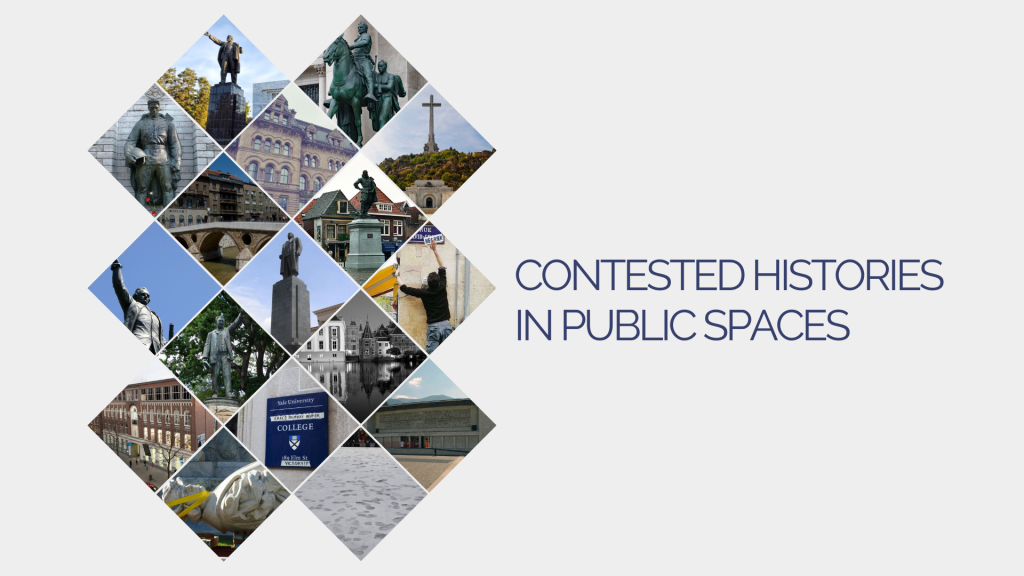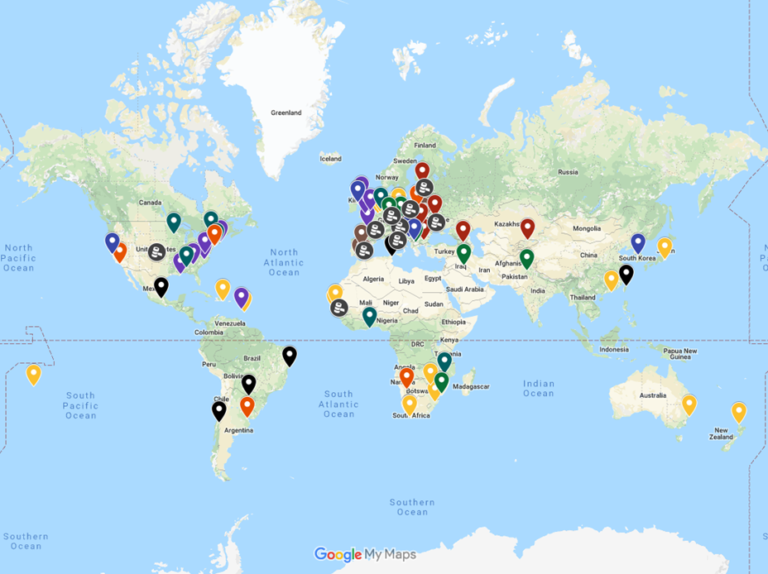Contested Histories in Public Spaces

About the Project
The IHJR’s project on Contested Histories in Public Spaces is a multi-year initiative intended to address controversies over statues, memorials, street names and other representations of disputed historical legacies in public spaces. The objective of the Contested Histories project is to provide decision-makers, policy planners, educators, and other stakeholders with a set of case studies, best practices and guidelines for addressing historical contestations in an effective and responsible manner. As part of this project, the IHJR works with the International Bar Association in London, and the Salzburg Global Seminar in Austria, on a series of in-depth case studies expected to be completed in Autumn 2020. For more information contact Marie-Louise Jansen, Director, Contested Histories Project (jansen@ihjr.org).
Background
Over the past several years there has been growing public controversy over contested historical legacies on university campuses and in public spaces in towns and cities around the world. The Rhodes Must Fall movement that began in Cape Town, South Africa, and the controversy over statue of Robert E. Lee in Charlottesville, Virginia, in the United States, are but two examples (see below). Most contestations occur at the municipal or institutional level, where the physical representations of historical legacies are encountered on a daily basis, whether in the form of statues, street names, building names, monuments, memorials or emblems and symbols.
Conflict over interpretations of history span a range of issues including legacies of slavery, imperialism, fascism, communism, colonialism, inter-ethnic tensions, mass human rights abuses and other relevant subjects. In almost all cases calls for removal of statues, renaming of streets, and reframing of school or university curricula, are symptomatic of deeper divisions within societies.
Confronted with public protests, street demonstrations, and social media campaigns, decision makers have often responded in haste, sometimes in panic, and more often than not without the benefit of established principles, processes or best practices, resulting in remedies that are sometimes inadequate, ineffective or arbitrary with potentially long-term, unintended consequences.
Project Aims
The Contested Histories project seeks to identify, document, and examine cases of contestation around the world, with the goal of identifying a set of principles, processes and best practices that can help inform decision making. To this end, the IHJR has identified more than a hundred cases in Africa, Asia, Australia, Europe and the Americas. Each case is researched and tracked on a digital map connected to a database. The intention is to build an interactive web platform accessible to a wide range of stakeholders. Although each case is unique, and underlying causes within communities are often specific to individual societies and/or circumstances, it is hoped that the aggregated materials will provide insights that help facilitate better informed decision making when responding to future contestations, and provide a resource for educators interested in examining multi-perspective approaches to history education.
The Institute for Historical Justice and Reconciliation is a research center at EuroClio and works in cooperation with a range of public, private and independent institutions. The publication of a volume on Contested Histories in Public Spaces is being overseen by an international Task Force and is supported in part by the International Bar Association, and Salzburg Global Seminar, with research support from Erasmus University, Harvard University, and the University of Oxford. The program team welcomes suggestions for cases to include in its study, which can be submitted to the following email: jansen@ihjr.org
Expected Outcomes
The project on Contested Histories in Public Spaces works towards providing the following outputs:
1. Principles, processes and guidelines for decision-makers;
2. Series of case studies in a published volume;
3. Global survey and mapping of contestations with relational database;
4. Digital platform to aggregate and disseminate relevant information;
5. Case study materials adapted for high school and university curricula.
Interactive mapping
The Contested Histories project also seeks to provide an interactive map that shows the locations of contestations across the globe with a picture and short description. The cases will be organised by categories of contestation and an icon indicating if they are bounded to legal components. Below you can see a provisional version of the map. The interactive map will be released upon completion.

